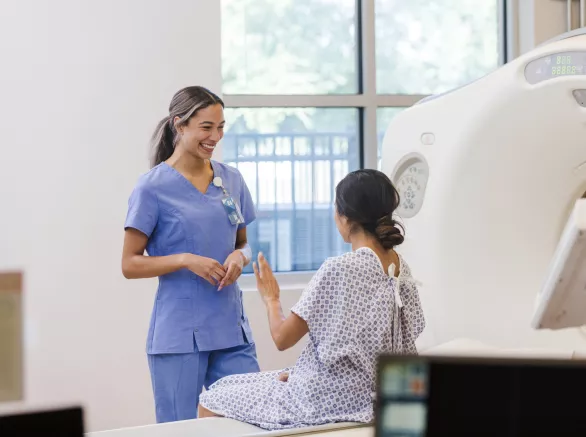

- Ph.D., Materials Science and Engineering, Georgia Institute of Technology, 2021
- B.S., Chemistry, University of North Carolina, Chapel Hill, 2016
- National Science Foundation Graduate Research Fellowship Program, Georgia Institute of Technology, 2018-2021
- President’s Fellowship, Georgia Institute of Technology, 2016-2020
- Carolina Research Scholar, University of North Carolina, 2016
- Gillian T Call Senior Thesis Research Grant, University of North Carolina, 2015
- Taylor Summer Undergraduate Research Fellowship, University of North Carolina, 2014
Dr. Brightbill is a skilled and versatile materials scientist with a passion for advancing biomedical device and diagnostic technologies. With a strong background in chemistry, nanoscience, and materials, she brings a multidisciplinary approach to solving complex challenges. Her expertise includes materials characterization, surface analysis, in vitro diagnostics, MRI compatibility testing for medical devices, wear particle characterization, and medical device failure analysis.
Dr. Brightbill's repertoire includes an array of thin film and surface characterization techniques, encompassing atomic force microscopy (AFM), energy dispersive spectroscopy (EDS), x-ray photoelectron spectroscopy (XPS/Auger), Raman spectroscopy, surface plasmon resonance (SPR), ellipsometry, quartz crystal microbalance with dissipation (QCM-d), cyclic voltammetry (CV), electrical impedance spectroscopy (EIS), scanning electron microscopy (SEM), transmission electron microscopy (TEM), and microscale infrared and Raman spectroscopy (mIRage). Dr. Brightbill has experience with microelectronics fabrication, including cleanroom use, high vacuum technology, and semiconductor processing. Dr. Brightbill has additional experience with nanomaterials, finite element modeling, nuclear magnetic resonance (NMR), magnetic resonance imaging (MRI), gas and liquid chromatography, mass spectrometry, and rat model studies.
Prior to joining Exponent, Dr. Brightbill earned her Ph.D. from the Georgia Institute of Technology, where her dissertation focused on enhancing the reliability and stability of in vitro potentiometric biosensors through intricate studies of biological-material interfaces. She has successfully fabricated and tested microelectronics, developed in vitro assays, and conducted meticulous protein adhesion studies. Additionally, Dr. Brightbill has research experience with self-assembled monolayers, growth and exfoliation of 2D materials, in vivo fast-scan cyclic voltammetry, and animal model studies.
